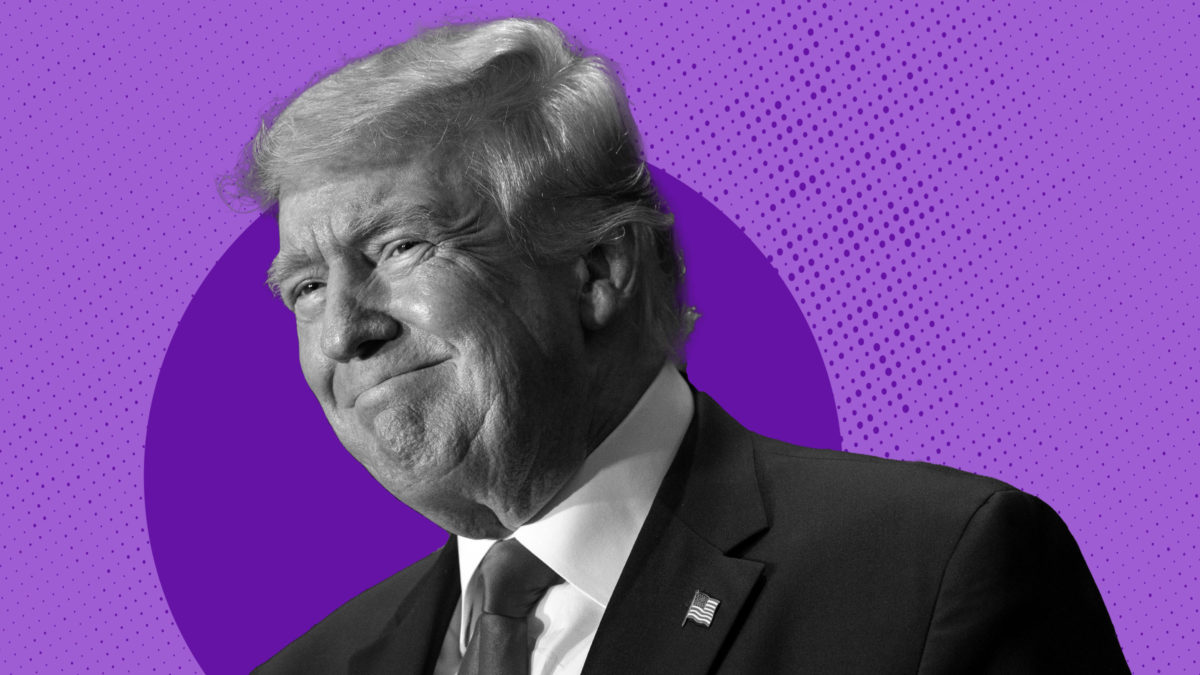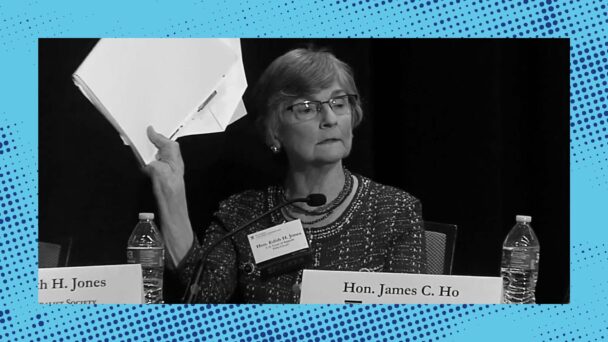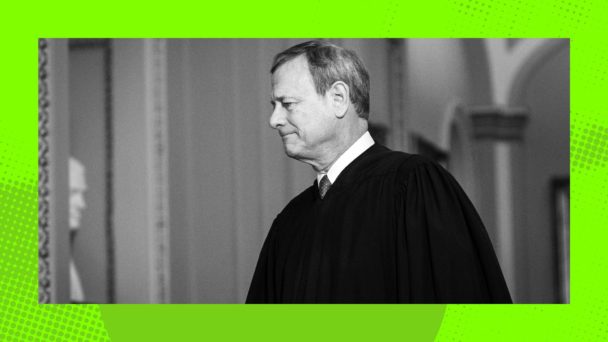The last time Donald Trump was a candidate in a U.S. presidential election, he tried to avoid his loss by “ending democracy,” which is generally frowned upon by the public and by law. Three years later, as he prepares to run again, legal scholars are earnestly debating amongst themselves about whether he can legally do so. There are rules about such things, after all—the Fourteenth Amendment to the Constitution, which Congress adopted in 1868, blocks specified officials who participated in “insurrection or rebellion” from holding higher office.
Given that, again, Trump urged his armed supporters to storm the U.S. Capitol building in January 2021, and refused to call them off despite besieged congressmembers’ repeated pleas, all in effort to prevent the certification of the election result—an act for which Trump was impeached by Congress and eventually indicted by the Department of Justice—you might think the Fourteenth Amendment would apply here. But those rules are proving hard to parse for certain conservative legal academics with severe cases of Lawyer Brain. It is very true to form for legal scholars to complicate things, and for conservative legal movement leaders to decide the sensible solution is ultimately giving Republicans what they want.
Over the past month, law professor and Federalist Society co-founder Steven Calabresi has been firmly in one camp, arguing in various national outlets that the the Constitution disqualifies Trump from the presidency. “Section Three of the Fourteenth Amendment bans anyone from holding any federal office who has taken an oath to uphold the Constitution and who then breaks that oath by engaging in ‘insurrection or rebellion against the same,’” he wrote in The Volokh Conspiracy on August 10. “Donald J. Trump is precisely such a person.”
He has since reevaluated, penning a September 12 letter to the Wall Street Journal “correcting the public record on this important issue” and asserting that Trump is “eligible to be on the ballot in the 2024 presidential election.” In a Volokh Conspiracy essay a few days later, Calabresi explained that Trump is eligible because of “a technicality in the drafting” of the Fourteenth Amendment: The president, he argued, is not an “officer of the United States,” which Calabresi calls a “legal term of art” that does not apply to its chief executive.
Steven Calabresi creating narcotics-free sleep aids (Clip via YouTube)
A Federalist Society co-founder going from headlines like “Trump is Disqualified from Being on Any Election Ballots” one month to “Donald Trump Should Be on the Ballot and Should Lose” the next is hilarious, but not all that surprising. Sure, it seems obvious to normal people that Trump and other assorted insurrectionists shouldn’t clear the Constitution’s “no known traitors” hurdle to higher office. But the combined powers of academia-induced detachment from reality and knee-jerk fealty to the conservative legal movement can mean that common sense has little to no role in resolving questions about constitutional interpretation.
The discourse about Trump’s post-January 6 political aspirations focuses on Section 3 of the Fourteenth Amendment, sometimes called the Disqualification Clause. When Congress amended the Constitution after the Civil War, they realized it could be an issue to permit people who just rebelled against the government to help run that same government. So, they added a section saying that anyone who took an oath to uphold the Constitution as “as a member of Congress, or as an officer of the United States, or as a member of any State legislature, or as an executive or judicial officer of any State,” and then “engaged in insurrection or rebellion” or gave “aid or comfort” to those who did, cannot hold higher office.
As Calabresi told The Guardian a few weeks ago, “it’s really actually very clearcut” why this language prevents Trump from running again: He took an oath to uphold the Constitution, and broke that oath by inciting an insurrection. “Section 3 nowhere limits itself to the civil war or Confederates,” he added helpfully. “It’s in general language, and so it applies to anyone who incites an insurrection or rebellion.”
After two conservative professors published a law review article making the originalist case for Trump’s qualification, Calabresi described it to The New York Times as a “tour de force.” (Originalism is illegitimate as far as I’m concerned, but its devotees aren’t all wrong all the time—just most of it.) Writing in The Volokh Conspiracy on August 10, Calabresi even expressed hope for a lawsuit that would allow “the Supreme Court [to] open the dictionary and tell us what we all already know—that Trump incited an insurrection and is disqualified from being on any primary or general election ballots.”
Suddenly, Calabresi is much less certain. In his follow-up essay in The Volokh Conspiracy, he expresses newfound doubt that January 6 qualifies as an “insurrection” and concludes that Trump was not “an officer of the United States.” In it, he purports to empathize with readers who may be perplexed as to how someone could hold the highest office in the United States and not be an “officer” of it. But, he continues, he is persuaded by “thirty-three years of academic research and writing on the presidency” that the phrase “officer of the United States” does not include presidents—an argument that, to borrow the technical term used by law professor Akhil Reed Amar, is “genuinely stupid.” One can almost see the public service announcement: this is your brain, and this is your brain on legal academia.
Calabresi backed his way out of his previously-ironclad conclusion by forgetting what words mean: If you can’t define “insurrection” or “officer of the United States,” you can’t do anything about them. In his essay, he professes concern that excluding Trump would set a “bad precedent” for American politics, given the “confused state of the law,” without noting that he was hardly “confused” about any of this a couple weeks ago. What, exactly, is the “precedent” set for budding authoritarians (or people concerned about crumbling democracy) by reading special commander-in-chief coup carveouts into the Fourteenth Amendment? If Calabresi thought about these things, he doesn’t say. Not everything is a complex thought experiment with countless possible interpretations. Sometimes it’s really as simple as “if you want to be president again, you don’t get to do an insurrection.”
Calabresi’s 180 degree turn away from common sense and towards the presumptive Republican presidential nominee is a reminder that in the conservative legal movement, conservative comes first. The “legal” part always comes second, or not at all.




